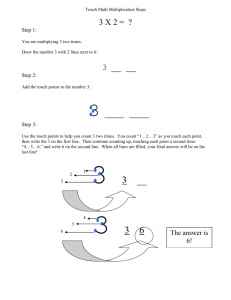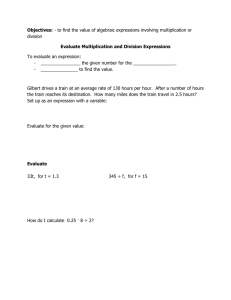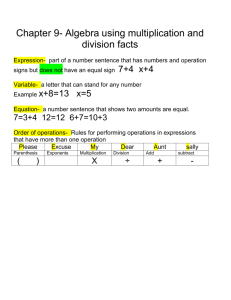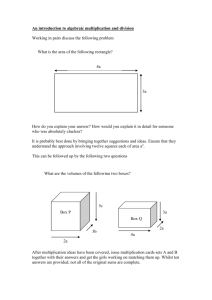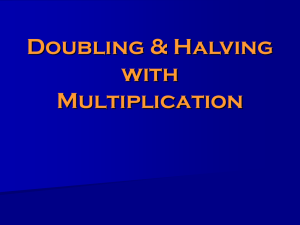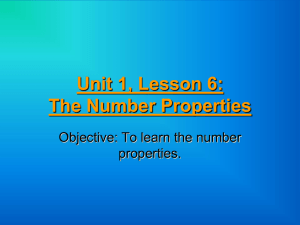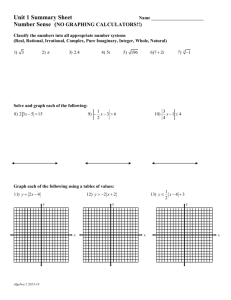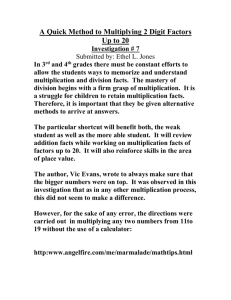Lesson Plan Form
advertisement
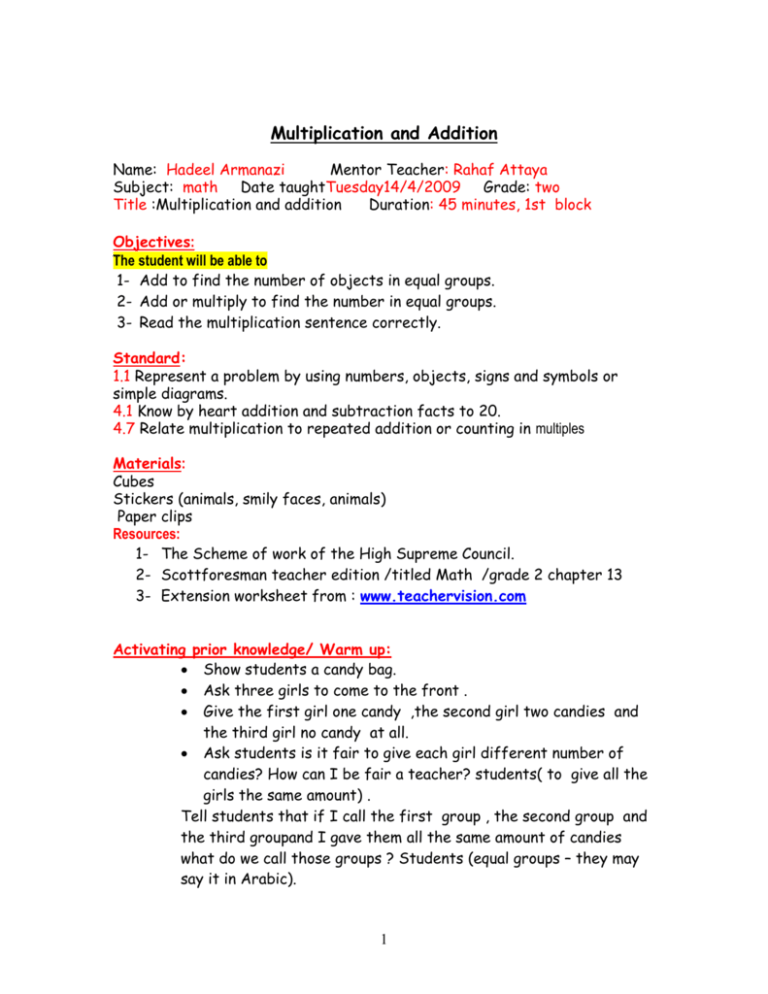
Multiplication and Addition Name: Hadeel Armanazi Mentor Teacher: Rahaf Attaya Subject: math Date taughtTuesday14/4/2009 Grade: two Title :Multiplication and addition Duration: 45 minutes, 1st block Objectives: The student will be able to 1- Add to find the number of objects in equal groups. 2- Add or multiply to find the number in equal groups. 3- Read the multiplication sentence correctly. Standard: 1.1 Represent a problem by using numbers, objects, signs and symbols or simple diagrams. 4.1 Know by heart addition and subtraction facts to 20. 4.7 Relate multiplication to repeated addition or counting in multiples Materials: Cubes Stickers (animals, smily faces, animals) Paper clips Resources: 1- The Scheme of work of the High Supreme Council. 2- Scottforesman teacher edition /titled Math /grade 2 chapter 13 3- Extension worksheet from : www.teachervision.com Activating prior knowledge/ Warm up: Show students a candy bag. Ask three girls to come to the front . Give the first girl one candy ,the second girl two candies and the third girl no candy at all. Ask students is it fair to give each girl different number of candies? How can I be fair a teacher? students( to give all the girls the same amount) . Tell students that if I call the first group , the second group and the third groupand I gave them all the same amount of candies what do we call those groups ? Students (equal groups – they may say it in Arabic). 1 Revise the meaning of equal groups from previous lesson. Write down on the board equal groups. Write down the additional sentence for the candies and tell students that today we are going to find out an easier way to conclude the sum of equal groups. Value: the importance of sharing things between friends equally. Teaching strategy Show students a picture of equal groups of 2 stars. Ask volunteer to write the addition sentence on the board .Encourage them to find easier ways to conclude the answer. As a hint, encourage them to think of how many times they say 2. Introduce the concept of multiplication and its symbol. Show students how to write a multiplication sentence and how to read it. (you first write the number of the group then the number of the objects inside each group ) (Verbally you say the number of the groups times the number of the objects is answer). Point out the fact that we use multiplication when we have equal groups only. Go back to the candies example and encourage students to tell you how they can use multiplication in it . Give a pair of small cubes . Ask them to form equal groups by using the cubes and write down additional sentences and the multiplication sentence . Give each group various manipulatives( paper clips,different shapes and styles of stickers) and A3 paper. The A3 papers have circles to represent the equal group . Ask students to fill those circles with numbers of objects and then write additional and multiplication sentence . Check groups' answers. Explain the worksheet which should be done individually in their math booklet lesson 3 sheet 7. Students’ Activity: Write the addition sentence on the board. Explain the meaning of the equal groups as a revision from the previous lesson . Read a multiplication sentence aloud. 2 As pairs : make equal groups by using the cubes Group work, Students will make equal groups by using the provided manipulatives. Then they should write the addition sentence and the multiplication sentence that represents their groups' work. Individual worksheet in the math booklet lesson 3 sheet 7 Students should first look at the picture and write addition sentence to the picture then use multiplication sentence for that picture. Closure: Revise with the students the main points of today's lesson. Ask them to think,show and tell the equal groups in their bodies e.g ( 2 eyes ,2 ears,2 hands ,2 group of 10 fingers ,one group of one noise ) Aks volunteer to come and write on the board the multiplication sentence to the body group . Tell studnets that tomorrow they will have more practice on multiplication . Lesson Extension and/or Modification: Lesson extension: Ask them to open their math copybook and draw their own equal group and then write an addition and multiplication sentence. For advanced students: do an extra worksheet of problem solving . For Enlgish learners : by seeing and counting the objects in each group will help them For visual learner: seeing the pictures and the stickers will help them . For bodily/kinesthetic learners : counting their body parts will help them . Logical learners: the summary question motivate their thinking. Intrapersonal learners: solving the worksheet individually. Assessment: The teacher will formally assess students' understanding based on correct completion of worksheet for the math booklet lesson 3 sheet 7 The teacher will assess the students ' understanding informally by observing the group work. 3 Reflection: The lesson went well. The children liked the idea of the candies in the warm up. Bringing a candy during the warm up catches student's attention. In addition, they liked making equal groups using their group manipulative. 4 5 6
